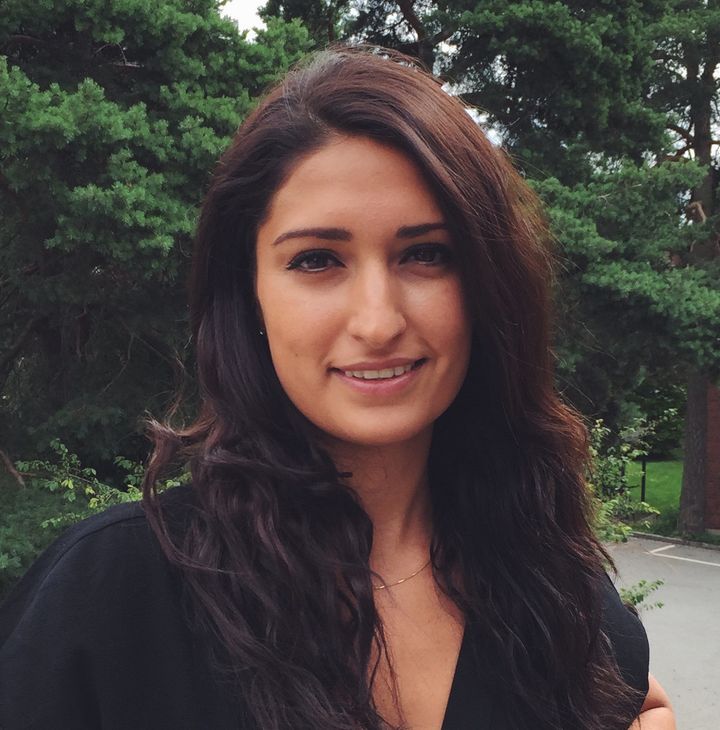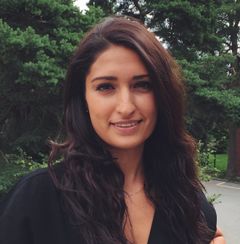Brain activity can explain the causes of prejudice
An international team of scientists, led from Karolinska Institutet, has investigated the neural basis of racial biases. The results, published in the scientific journal NeuroImage, show that after an aversive experience, differences in brain activity are seen, depending on whether the experience is associated with a member of the person's own ethnic group or another.

People are good at putting people and items into categories. From an evolutionary perspective, it has always been advantageous to be able to quickly determine if something is a danger or an asset. This can however be a problem today since it can lead to unfounded biases. Psychologists use the terms ingroup and outgroup to differentiate between the group you belong to versus all other groups. Scientists have previously shown that we acquire and express fear differently based on the racial identity of a person we learn something about. However, the brain mechanism of these biases has not been studied previously. ”Based on what we already know about fear learning, we expected differential brain responses to racial ingroups and outgroups” says Tanaz Molapour, doctoral student at the Department of Clinical Neuroscience, and lead author of the study. ”As expected, our results show that there are differences in brain activity after aversive experiences, depending on whether the experience was associated with the ingroup or outgroup.” In the study, 20 white participants were presented with images of two black and two white faces each. One face of each racial group was paired with a mildly unpleasant electrical stimulation, representing an aversive experience. Next, participants watched all the faces again without any shocks being administered, so that the participants learned that the faces were safe. Two days later, the participants took part in a social interactive ball-tossing task, with images of faces of new black and white individuals. Learning responses were measured through physiological arousal, brain responses and behaviour. The researchers found two brain areas in particular, the amygdala and the anterior insula, that played key roles in differentiating between ingroup and outgroup faces. The results show that some of the participants had exaggerated memories of aversive experiences associated with outgroup faces. The brain responses predicted later expressions of discriminatory behaviour towards new outgroup members. According to Associate Professor Andreas Olsson, the principle investigator behind the study, these findings may help us to better understand the brain mechanisms by which small biases based on an aversive experience with a member of another social or ethnic group may turn into a xenophobic response. This study was funded by the Swedish Research Council and the European Research Council. Publication: ”Neural correlates of biased social fear learning and interaction in an intergroup context”, Tanaz Molapour, Armita Golkar, Carlos David Navarrete, Jan Haaker, Andreas Olsson, NeuroImage, online 10 July 2015, doi: 10.1016/j.neuroimage.2015.07.015 For more information, please contact: Tanaz Molapour, Doctoral Student Department of Clinical Neuroscience Phone: +46 8 524 836 06, (cell) +46 73 588 29 24 E-mail: tanaz.molapour@ki.se Andreas Olsson, Associate Professor Department of Clinical Neuroscience Phone: +46 8 524 824 59, (cell) +46 70 744 60 91 E-mail: andreas.olsson@ki.se
More about Andreas Olsson's research group: http://www.emotionlab.se/
Contacts
Contact the Press Office: ki.se/pressroom
Images

Karolinska Institutet (http://ki.se/english) is one of the world's leading medical universities. Its vision is to significantly contribute to the improvement of human health. Karolinska Institutet accounts for over 40 per cent of the medical academic research conducted in Sweden and offers the country´s broadest range of education in medicine and health sciences. The Nobel Assembly at Karolinska Institutet selects the Nobel laureates in Physiology or Medicine.
Subscribe to releases from Karolinska Institutet - English
Subscribe to all the latest releases from Karolinska Institutet - English by registering your e-mail address below. You can unsubscribe at any time.
Latest releases from Karolinska Institutet - English
New method reveals how the brain and inner ear are formed3.4.2025 20:00:00 CEST | Pressmeddelande
Researchers at Karolinska Institutet have developed a method that shows how the nervous system and sensory organs are formed in an embryo. By labelling stem cells with a genetic ‘barcode’, they have been able to follow the cells’ developmental journey and discover how the inner ear is formed in mice. The discovery, published in Science, could provide important insights for future treatment of hearing loss.
Fluoride in drinking water is associated with impaired childhood cognition7.3.2025 15:30:00 CET | Pressmeddelande
Elevated concentrations of fluoride can occur in well water, and in some countries, it is added to drinking water to counteract caries in the population. A study from Karolinska Institutet in Sweden now supports a few previous studies indicating that exposure to fluoride during the fetal stage or early childhood may impair cognition in children. The study is published in the journal Environmental Health Perspectives.
Children with ARFID face increased risk of disease17.2.2025 17:00:00 CET | Pressmeddelande
Children with avoidant restrictive food intake disorder (ARFID) have an elevated risk of developing psychiatric and physical conditions, a new study from Karolinska Institutet published in JAMA Pediatrics reports. The study highlights the importance of early identification to improve care of these children.
Preterm babies receive insufficient pain management27.1.2025 15:29:17 CET | Pressmeddelande
A large proportion of babies born very early need intensive care, which can be painful. But the healthcare system fails to provide pain relief to the full extent. This is shown by the largest survey to date of pain in neonatal care, now published in the journal Pain.
New study paves way for immunotherapies tailored for childhood cancers20.1.2025 17:00:00 CET | Pressmeddelande
Researchers at Karolinska Institutet and the Astrid Lindgren Children’s Hospital in Sweden have determined how children’s immune systems react to different kinds of cancer depending on their age. The study, which is published in the journal Cell, reveals significant differences between the immune response of children and adults, and has the potential to lead to new tailored treatments for children with cancer.
In our pressroom you can read all our latest releases, find our press contacts, images, documents and other relevant information about us.
Visit our pressroom